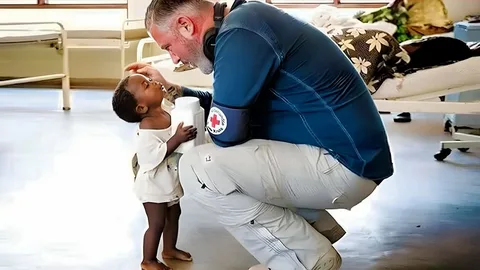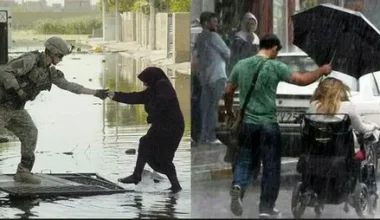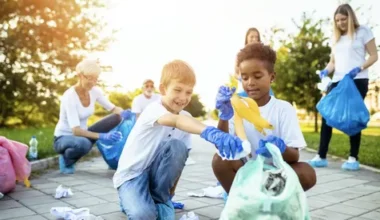Introduction
- Hook: How a simple act of kindness can change lives in unexpected ways.
- The power of small charitable acts and why they matter.
- Overview of what the blog will cover.
1. The Ripple Effect: How Small Acts of Kindness Multiply
- How a single act can inspire many
- The psychological impact of giving and receiving kindness
- Scientific studies proving the ripple effect of generosity
2. The Science Behind Kindness and Happiness
- How acts of charity release “feel-good” hormones
- The link between generosity and lower stress levels
- Why giving makes us happier than receiving
3. Everyday Acts of Kindness That Create Lasting Change
- Helping a neighbor in need
- Donating unused items to shelters
- Volunteering time for a local cause
- Supporting small businesses and ethical brands
4. Small Donations That Have a Big Impact
- How micro-donations fuel charitable organizations
- Crowdfunding: A modern way to make a difference
- Sponsoring a child’s education for just a few dollars a day
- Examples of charities making a difference with small contributions
5. Acts of Kindness in the Workplace
- How corporate social responsibility boosts morale
- Encouraging kindness in the office culture
- How small workplace donations and volunteer programs create change
6. Teaching the Next Generation About Giving
- How to raise compassionate and generous children
- School programs that encourage charity and kindness
- The role of parents in instilling philanthropic values
7. The Role of Social Media in Spreading Kindness
- How online fundraising has changed charity forever
- The power of viral kindness challenges
- Ways to use social media to encourage charitable acts
8. Overcoming the Excuses: “I Can’t Afford to Give”
- How to give without spending money
- The value of time, skills, and encouragement
- Why every little bit counts
Conclusion: Be the Change You Wish to See
- Summary of the key points.
- Encouragement to start small but think big.
- A call to action to make a difference today.
FAQs
- Can small acts of kindness really change the world?
- How can I help if I don’t have money to donate?
- What are some easy ways to start giving back?
- How can I teach my kids the importance of kindness?
- Are there any digital tools to help me contribute more effectively?
A Little Kindness, a Big Impact: How Small Charitable Acts Create Lasting Change
Introduction
- Hook: Imagine if a single small act of kindness could create a ripple effect, transforming lives in ways you never imagined. What if I told you it’s possible—and science backs it up?
- The power of small charitable acts and why they matter.
- Overview of what this blog will cover: the science, real-world examples, and actionable ways to make an impact.
1. The Ripple Effect: How Small Acts of Kindness Multiply
How a Single Act Can Inspire Many
A simple act—like paying for someone’s coffee, donating a book, or helping a stranger—can set off a chain reaction. Studies show that witnessing kindness makes others more likely to pay it forward, creating a positive cycle that keeps growing.
The Psychological Impact of Giving and Receiving Kindness
Kindness is contagious. When you do something kind, the recipient experiences a boost in mood, which then encourages them to extend kindness to someone else. This effect, known as “moral elevation,” has been proven to inspire more generosity and compassion in communities.
Scientific Studies Proving the Ripple Effect of Generosity
- A study from the University of California found that acts of kindness create a “cascade” effect, making individuals who witness them more likely to engage in their own generous behavior. Source
- Research from Harvard Business School confirms that people who give—even small amounts—experience greater happiness and life satisfaction than those who don’t. Source
2. The Science Behind Kindness and Happiness
How Acts of Charity Release “Feel-Good” Hormones
When you help someone, your brain releases oxytocin, dopamine, and serotonin—hormones that promote happiness and reduce stress. This is known as the “helper’s high.”
The Link Between Generosity and Lower Stress Levels
Acts of kindness have been shown to lower cortisol (the stress hormone), which can improve overall health, reduce anxiety, and even strengthen the immune system. Source
Why Giving Makes Us Happier Than Receiving
Neuroscientists have discovered that the brain’s reward system is more activated when we give rather than receive, leading to a lasting sense of fulfillment and joy.
3. Everyday Acts of Kindness That Create Lasting Change
- Helping a Neighbor in Need – Whether it’s running an errand for an elderly neighbor or offering support to a struggling friend, small actions make a big difference.
- Donating Unused Items to Shelters – Instead of throwing away clothes, books, or household items, donate them to local charities or shelters.
- Volunteering Time for a Local Cause – Time is just as valuable as money. Volunteering at food banks, animal shelters, or community centers has a profound impact.
- Supporting Small Businesses and Ethical Brands – Choosing to buy from companies that give back to society creates positive change.
4. Small Donations That Have a Big Impact
How Micro-Donations Fuel Charitable Organizations
Even a few dollars can provide food, water, or medical aid to those in need. Many charities thrive on small, consistent donations rather than large one-time contributions.
Crowdfunding: A Modern Way to Make a Difference
Platforms like GoFundMe and Kickstarter allow individuals to raise funds for life-changing causes, proving that small contributions from many people can lead to significant outcomes.
Sponsoring a Child’s Education for Just a Few Dollars a Day
Organizations like Save the Children and World Vision allow individuals to sponsor children’s education and well-being for the cost of a daily coffee. Source
5. Acts of Kindness in the Workplace
How Corporate Social Responsibility Boosts Morale
Companies that prioritize giving back—through charity drives, sustainability initiatives, and employee volunteer programs—see higher employee satisfaction and retention.
Encouraging Kindness in Office Culture
Simple actions, like recognizing coworkers’ efforts or offering help on a busy day, foster a more positive and productive work environment.
6. Teaching the Next Generation About Giving
How to Raise Compassionate and Generous Children
Encouraging children to participate in acts of kindness from a young age instills lifelong values of empathy and social responsibility.
School Programs That Encourage Charity and Kindness
Programs like “Pay It Forward” days or fundraising events teach children the importance of giving back to their communities.
7. The Role of Social Media in Spreading Kindness
How Online Fundraising Has Changed Charity Forever
Social media platforms have made it easier to raise awareness and funds for important causes globally.
The Power of Viral Kindness Challenges
Movements like the “Ice Bucket Challenge” and “Pay It Forward” movements have shown how social media can amplify generosity.
8. Overcoming the Excuses: “I Can’t Afford to Give”
How to Give Without Spending Money
- Volunteering time or skills.
- Sharing awareness about important causes.
- Offering emotional support to those in need.
Why Every Little Bit Counts
Even small actions—like leaving a positive review, mentoring someone, or donating $1—contribute to greater social good.
Conclusion: Be the Change You Wish to See
- Summary of key takeaways.
- Encouragement to start small but think big.
- A challenge to perform one act of kindness today and inspire others to do the same.
FAQs
- Can small acts of kindness really change the world?
- Yes! Even the smallest act of kindness can inspire a ripple effect, creating positive change in unexpected ways.
- How can I help if I don’t have money to donate?
- Donate time, skills, or simply spread awareness about important causes.
- What are some easy ways to start giving back?
- Start with small gestures like volunteering, donating used items, or supporting ethical businesses.
- How can I teach my kids the importance of kindness?
- Lead by example and involve them in charitable activities from a young age.
- Are there any digital tools to help me contribute more effectively?
- Yes! Crowdfunding platforms, charity apps, and social media fundraising campaigns make giving easier than ever.
Hashtags for Social Media
- #KindnessMatters
- #SmallActsBigImpact
- #GiveBack
- #ChangeTheWorld
- #Generosity
- #PayItForward
- #SocialGood
- #MakeADifference
Call to Action
Encourage readers to share their own stories of kindness in the comments and challenge them to perform one charitable act today. Urge them to share this post to inspire others!





